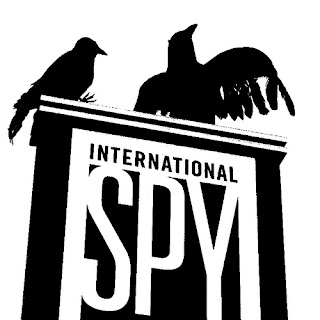 |
| Image of Washington Metro by Devin Westhause, via Flickr.com |
Two days after I arrived in D.C., I started looking for an apartment for my temporary stay in D.C. I knew that I would be in in D.C. for at least two months, but possibly as long as six months, but I wouldn't know how long for at least a month. Most landlords in the area required a minimum lease term of six months, so the available places were limited, and the competition for them fierce.
The first five weeks were orientation. In the first week, we signed papers - so many papers - including the commitment to complete at least one year's service overseas to avoid having to pay back all the costs the U.S. government had incurred to get me to this point. The orientation consisted of a series of lecturers representing offices in the Department and other Foreign Affairs agencies, orienting us to what we needed to know for the future. We did role-playing to get an idea of what the work would be like. And we went through more assessments, including tests of our knowledge of foreign languages and the Modern Language Aptitude Test or MLAT to determine how much or little time we would need for language training for future assignments. I was tested in German, Spanish, Romanian, and Farsi. My scores were not high enough in any of them to exempt me from language training, but the language I would end up being trained in would depend on my assignment.
At the end of the five weeks of orientation, if someone had told me I could change my mind, give up the Foreign Service, go back to Minneapolis and pick up where I left things in March, that I wouldn't need to pay back my transportation costs, my hotel bills, my per diem, the packing up and storage of my possessions, and my salary to that point, I would have accepted it. But by that point, I couldn't afford to change my mind, even if I could have gone right back to the job I had quit and move back into the house I had sold.
So I continued.
The MLAT was not accurate for me and that fact resulted in some very skewed results later. The MLAT consisted of presenting us with a series of vocabulary items, written in a phonetic alphabet, followed by a test of how well we could recall and record what the foreign words, written in the phonetic script meant. The vocabulary items used in MLAT are from obscure, little known languages, based on the assumption that those being tested would be unlikely to have encountered them.
The MLAT was developed at the University of Michigan, one of the first universities involved in developing language training materials, originally I believe for the U.S. military. When I was teaching in San Francisco, we used many of University of Michigan's textbooks, including one to teach pronunciation. That textbook used a modified phonetic alphabet to help non-English speakers see in order to improve their ability to hear and then produce the English sounds that are so different from their own languages. That was the phonetic alphabet used in the MLAT.
In the case of my orientation class, the language used in the MLAT was Kurdish. While Kurdish and Farsi, the language spoken in Iran, are quite different, they share a lot of vocabulary items.
Bottom line - where the MLAT was designed to test language aptitude, in my case the combination of the language and the phoetic alphabet used tested my language experience. A perfect score on MLAT is 80. My score was 77.
The result of my MLAT score was once I was assigned to Stuttgart, Germany, for my first consular position, I was put into a class of four others who had completed 12 weeks of German language training together, during which time they had covered the material that normally was covered in 24 weeks. The instructors and the head of the Germanic languages department thought that my high MLAT score meant I would be able to catch up with this group easily. They were wrong. I spent every day in those classes not understanding either the vocabulary or the grammatical concepts that the others had already mastered. In addition, I missed all the role playing for the work that I was going to be doing - visa interviews - because those lessons were normally covered in the 8th week. Instead of learning the vocabulary I needed to ask questions and understand the answers regarding everyday living, I learned the vocabulary to discuss macroeconomic trends, inflation, and the strategic defense initiative.
The remainder of the six months I spent in Washington consisted of security training, consular training, and area studies, taught by Dr. Kendal Meyers.
At the end of the formal training, I had a week of consultations in Washington and two days of consultation with Immigration and Naturalization Service in New York, after which I flew off to Stuttgart where I arrived in September 1985.
That is when my real orientation to life in the Foreign Service began.






+by+ocularinvasion.jpg)
+by+lisibo.jpg)


